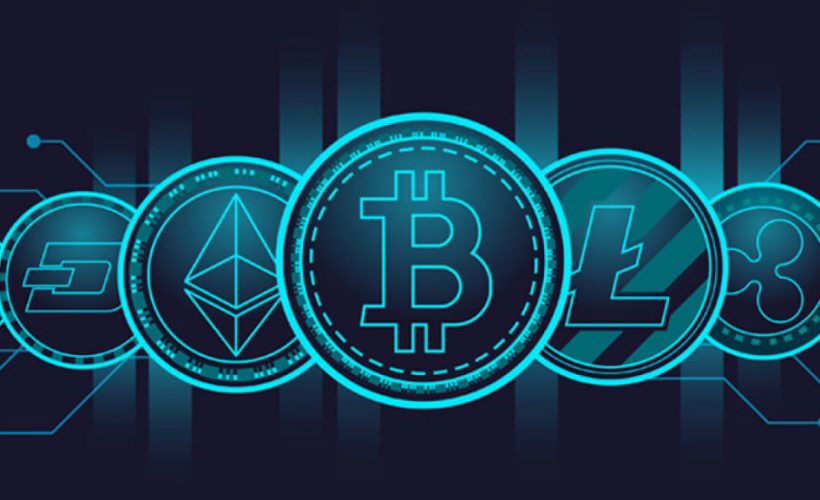
From themed games to live casinos to new payment options, online casinos are always at the forefront of trends, continually innovating and evolving in order to meet players’ changing needs. It’s for this reason that in recent years, Bitcoin and other cryptocurrency online casinos have started gaining in popularity, mirroring the growth of virtual currency in the financial sector. But what exactly is cryptocurrency, and how is it used? Let’s take a look.
What is a cryptocurrency?
You’ve no doubt heard the prefix ‘crypto’ before, in words like ‘cryptography’ and ‘cryptogram’. In fact, ‘crypto’ means ‘hidden’ or ‘safe’, and in the larger context of the word ‘cryptography’, it means technology used to keep information safe and hidden.
So what is it that’s kept safe and hidden in cryptocurrency? Your information and your transactions of course – and it’s this that makes cryptocurrency such a desired commodity, with no banks needed to facilitate or protect transactions. Instead, when using cryptocurrency, transactions are made via the blockchain – a shared database that encrypts and processes transactions directly, with no third party bank or financial institution needed. Thanks to the shared nature of the blockchain, no one entity has control over your transactions, and all payments that are sent and received are fully secure and protected at all times.
What types of cryptocurrency are there?
Essentially there are three different forms of cryptocurrency in existence – Bitcoin (which most people have heard of), altcoins (literally alternatives to Bitcoin), and tokens or dApps (decentralised apps). Let’s explore these a little further.
What is Bitcoin?
You’ll hear the word ‘decentralised’ a lot in reference to cryptocurrency, and that’s exactly what Bitcoin is – a decentralised cryptocurrency that exists in an online form only. What makes it decentralised is that it isn’t owned by any one company or government – instead it’s processed across a shared network, with people trading in Bitcoin directly, eliminating the need for banks. What we know about Bitcoin is that it was launched in 2008 by Satoshi Nakamoto; what we don’t know is if Satoshi Nakamoto is one person, a group of people, or even a real name!
This mystery aside, however, there’s no denying that Bitcoin has ushered in a new era of technology, establishing a peer-to-peer network that gives users power over their own transactions, rather than relying on banks or other intermediaries for processing. It’s fully secured, due to every transaction being recorded and verified in the blockchain, and it’s confidential and cost-effective too. Small wonder then that it’s been so embraced by the online casino community, with its safety standards and guarantee of anonymity being so highly sought-after.
What are altcoins?
As we mentioned earlier, altcoins are literally an alternative to Bitcoins – essentially the same type of cryptocurrency, but with small variations here and there. Some are very similar to Bitcoin, some are substantially dissimilar – it all depends on the type you use. Currently there are more than a thousand different forms of altcoin in existence, including Peercoin, Litecoin, Dogecoin and more, with the first ever altcoin created being Namecoin, introduced in 2011.
Like Bitcoin, that has a finite supply of only 21 million Bitcoins, altcoins also have a limited amount of coins available in order to retain their value. Some altcoins use the same open source protocol as Bitcoin, while others, such as Ethereum and NEO, are self-supporting, using their own individual systems and protocols. Each different altcoin serves its own purpose and function, from being used as digital currency to selling electricity, stocks or even houses. All you need is the right altcoin for the right purpose, and you’ll be able to make your transaction quickly and easily.
What are tokens?
Unlike Bitcoin and altcoins that have their own blockchains, tokens do not. Instead they fulfil a particular function, and are used in conjunction with decentralised apps (or dApps) that make use of smart contracts – contracts that are digitally enforced and processed by the blockchain, with no third parties needed. Tokens represent different types of value (although they aren’t intrinsically valuable themselves) and can be used to purchase items from dApps, or to purchase certain discounts.
What are the most popular cryptocurrencies?
We’ve had a look at the types of cryptocurrency available; now let’s look at which are the most preferred in the marketplace, and the various advantages of each.
Bitcoin
We’ve already taken a look at Bitcoin, and we’ve covered Bitcoin online casinos as well – however the advantages of using Bitcoin are always worth a second look.
It’s valuable. As we said earlier, there are only 21 million Bitcoin that will ever be in existence – so with 17 million already in use, there are only another 4 million to be mined. What this means is that the more people who want these remaining Bitcoins, the more they’ll be willing to pay for it, which means the value of Bitcoin will go up.
It’s easy to convert. Given the worldwide popularity of Bitcoin, it’s now easier than ever to convert into real-world currency. So if you decide you want to exchange your virtual Bitcoin for actual dollars and cents, you’ll be able to do so with very little fuss.
It’s easy to use. With Bitcoin universally acknowledged as being the biggest cryptocurrency in the world, it’s also the most universally accepted as well. What this means is that you can use it at almost any online store (eliminating the need to convert it into cash) and pay for your goods and services over the internet as you would with any regular payment mechanism. It’s here where Bitcoin online casinos come in, allowing transactions with Bitcoin in the same way as they would debit cards, credit cards, e-wallets and more.
Ethereum
Released in 2015, Ethereum is both a cryptocurrency and a decentralised platform that allows for the building of decentralised applications and smart contracts, and the issuing of cryptocurrency tokens. All applications on Ethereum run on its specific currency, known as Ether, and eliminate the need for any third parties or intermediaries. Where Ethereum surpasses Bitcoin is in its speed, with transactions taking just seconds to process, as opposed to Bitcoin’s minutes.
Ripple
So far we’ve spoken about how cryptocurrency has taken over the role usually played by banks, with no interference needed from third parties with regards to processing or verifying transactions. Where banks do enter the arena of cryptocurrency is with Ripple – a blockchain designed to be used by banks in order to facilitate instant international payments. Known as ‘the banker’s coin’, it allows banks to make low-cost, transparent transactions in real time. In this way, Ripple is revolutionising the way in which banks settle international payments, and is fast becoming a currency of choice for global organisations. With more and more banks, governments and financial institutions choosing to partner with Ripple, it’s set to become even more widespread in the future, offering banks a viable alternative to fiat currency.
Litecoin
Similar to Bitcoin, Litecoin is in fact a fork to Bitcoin, with its blockchain having split from Bitcoin’s blockchain upon the Litecoin update being offered. Launched in 2011 and recognised as one of the first cryptocurrencies to be released after Bitcoin, Litecoin was created by MIT graduate Charlie Lee with the intention of improving on Bitcoin’s offering. Based on an open-source global payment network, Litecoin is not controlled or overseen by any one entity, and is often known as ‘the silver to Bitcoin’s gold’.
With a faster block generation rate, however, Litecoin is in fact faster than Bitcoin, offering a speedier transaction confirmation and making it more desirable to users. Like Ethereum, Litecoin is also able to process transactions in seconds, rather than the minutes taken by Bitcoin. What’s more, Litecoin will also be the first cryptocurrency to make use of the Lightning Network, helping it to become more scalable, and allowing it to process even more transactions per second than it currently does. Finally, given that Litecoin transactions are significantly cheaper than those processed by Bitcoin, Litecoin is the preferred cryptocurrency for smaller payments (also known as micropayments) – so if you need to send small amounts as quickly as possible, Litecoin could be exactly the solution you’re looking for.
NEO
No it’s not a character from the Matrix, although it is just as impressive. Originally developed in 2014 by creator Da Hongfei, NEO was first known as AntShares, before being rebranded as NEO. As China’s largest cryptocurrency, NEO is sometimes referred to as ‘China’s Ethereum’, as a result of its use of smart contracts, although its success is also a due to its programming in a number of different languages such as Java, C++ and more. While other cryptocurrencies have had difficulty finding support within the Chinese government, NEO has had no such obstacles to navigate, and has instead built a constructive relationship with the country.
Feeling a bit more positive about cryptocurrencies in general? Now it’s time to put that new-found knowledge to the test. Take a look at the various cryptocurrency casinos available, read more about them, how to play and how to transact, and see if making the move to Bitcoin or another type of cryptocurrency casino will help you win in the long run.
Good luck!











